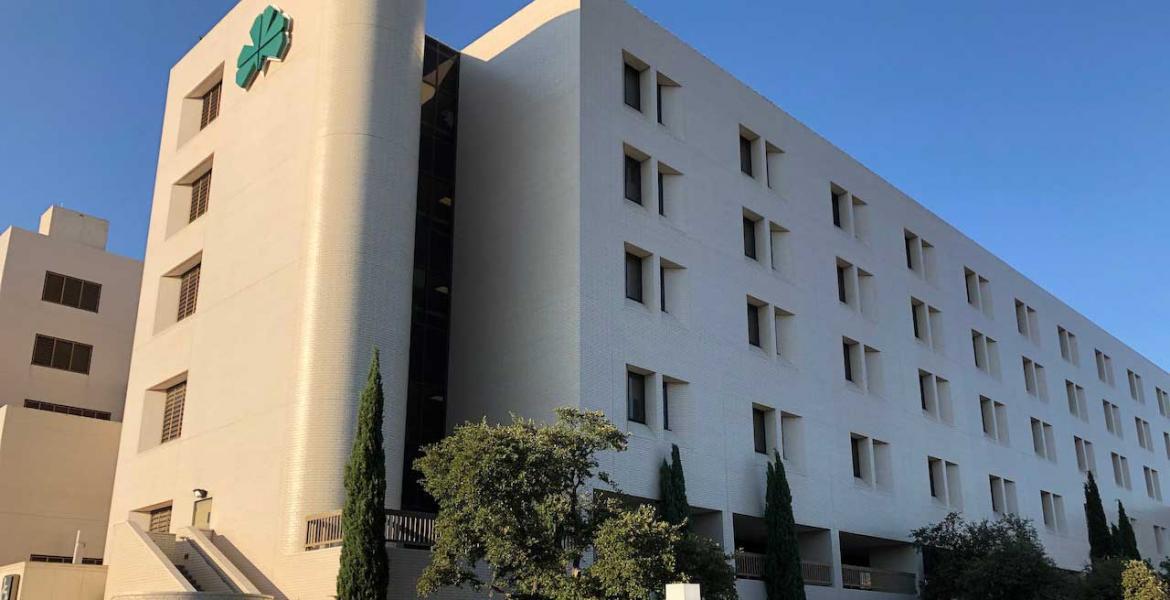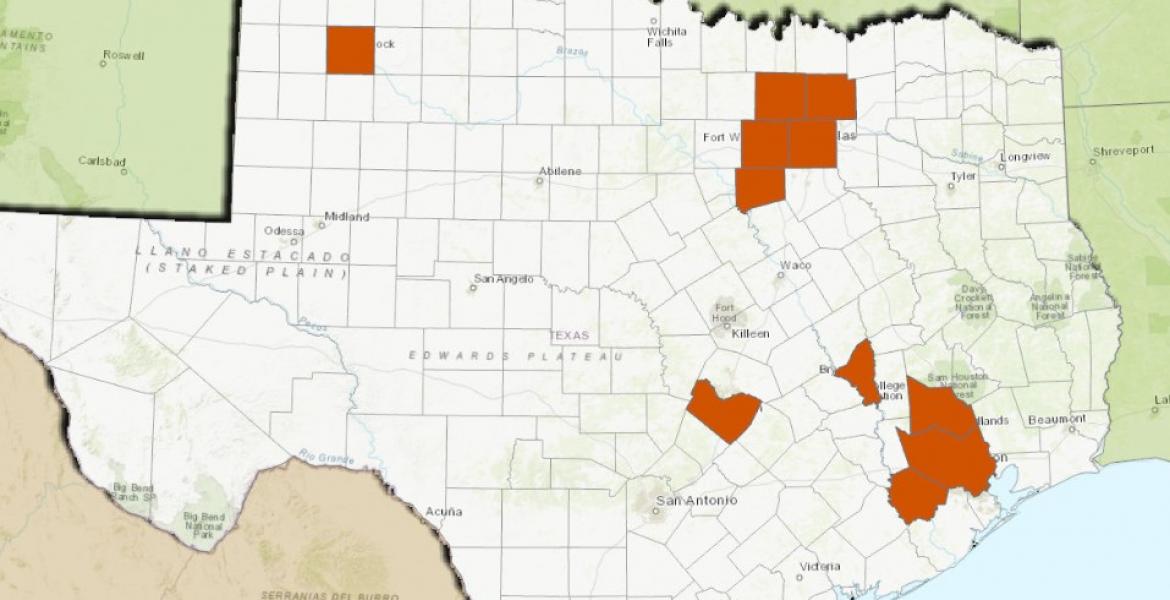John Dierker, an 86-year-old resident of Sagecrest Alzheimer’s Care Center, part of the Baptist Retirement Community, practiced law for 30 years, had achieved the rank of lieutenant colonel within the United States Air Force, had a beautiful wife, two daughters and a son when everything changed.
John lost his wife to a battle with leukemia after they spent some of his retirement years touring the United States in his motor home; he then underwent major surgeries to save his own health. He then was diagnosed with Alzheimer’s and was put in a situation he never thought he would be in.
“I honestly never thought I would be diagnosed with something like this,” said Dierker. “Hopefully I can use these experiences to help others in a similar situation. I have done a lot of research and the outcome of this disease, well it isn’t pretty.
“However, they are doing experiments all over the world and some seem to be yielding really positive outcomes. That gives me hope. If ever given the chance to participate in one of the more promising studies, I will gladly do so. When weighing out my options and risks, they seem nearly even to me. Perhaps I can help bring them one step closer to treating Alzheimer’s instead of just declining without having contributed anything,” he said.
Dierker participates in a weekly support group for grieving families and has become somewhat of a big brother for members of families of loved ones suffering different types of dementia. He freely offers advice on how family members of those suffering from dementia can handle the emotional rollercoaster. “I know you think these relatives of yours don’t remember you. But, you know, some times they are going to remember you. You shouldn’t grieve over the times they don’t recognize you, but instead be glad for the times that they do!” he said.
As a young man, Dierker served as a platoon leader in the U.S. Army during the Korean War via activation with the Oklahoma National Guard. When he returned home from the war, he said he didn’t want to have any thing more to do with “infantry,” so he transferred into the Oklahoma Air National Guard, eventually earning his law degree and becoming JAG, or Judge Advocate General.
His legal work in his civilian life centered on tax law, working for the U.S. Department of the Treasury for most of his career in Dallas. After retiring from the government, he practiced law on his own, representing clients in tax cases. After about three years of private practice, he and his wife decided to sell everything, including the house, and purchase a motor home to tour the country. They ended up in Oregon and shortly thereafter, his wife was diagnosed with cancer.
Life interrupted an otherwise peaceful retirement. Grief-stricken, but not defeated, Dierker moved to San Angelo to enjoy the company, as well as the help and care, of his son and his family.
At first, Dierker and his son did not realize he was experiencing signs of Alzheimer’s. It was little things like forgetting people’s names that showed the initial onset of the disease. Once Dierker was diagnosed with Alzheimer’s, both himself and his son thought it would be best to move him into assisted living. “It became obvious that I couldn’t take care of myself like I should. I was becoming a burden. We discussed it, and I still had my mind, and decided this would be best,” he said.
Dierker believes that dealing with the loss of his wife and recovering from the major surgeries have attributed to the progression of the disease. It is also hereditary and runs in his family.
“Despite the eroding of our memory that happens over time, I don’t believe that we completely lose ourselves,” said Dierker. “I’ve interacted with people who have Alzheimer’s or some form of dementia, and while they may not be able to remember your name, forget to shake your hand or have trouble speaking, there are little things that help ignite memories or emotions.”
“For example, I am friends with a preacher here at Sagecrest. He can’t remember me and he cannot not speak articulately, but when I ask him to pray for me he bows his head and starts muttering under his breath in prayer. I am always astounded, and it makes me tear up to see flashes of what people who suffer from Alzheimer’s or dementia used to be like. There are varying degrees of this disease, and I’m convinced that people are not totally lost. In regards to the family members, it can be really hard for them to accept the reality of the situation, but there is nothing you can do about it. So it’s best to accept it, think of them as they were, work with them, communicate with them and don’t get frustrated over the situation because that won’t help them.”
Dierker feels at peace living in Sagecrest, a nationally recognized memory care home at Baptist Retirement Community in San Angelo. Dierker likes his new home within the community, and he feels the team members are extremely supportive and knowledgeable. He enjoys the regularly scheduled musical performances and various entertainers who come to visit. His favorite is a lady who plays her harp every so often.
He also enjoys keeping his mind sharp with brain exercises like jumble and solitaire, figuring out puzzles and by playing games like dominos. Dierker said that it is important to keep current on events happening locally, nationally and internationally.
Dierker credits a member of the staff there for being the one to help him fully understand the magnitude Alzheimer’s.
“A nurse here, Megan, was the only one who told me what this Alzheimer’s was all about. After we had the discussion, I went to my room and moped for the rest of the day. Then I went and did some research on the disease. The first thing I want to do is volunteer for the experimental treatment,” he said.
“There are different stages and symptoms associated with the disease, so if you are diagnosed with it, I recommend doing as much research as you can to learn about different ways of dealing with it,” said Dierker. “The hardest part for me has been losing my independence,” said Dierker.
“However, Alzheimer’s can be really dangerous for someone living alone or without the right kind of care. If you do find yourself in a position where you require people to care for you, treating them with kindness goes a long way. Nurses and caregivers are generally such servants of the people. They deserve great recognition for their work. These social workers and nurses are wonderful folks. I know I give them a hard time, but they make dealing with this much easier. I wish everyone in the world had their approach to being wonderful people. They are selfless folks and ought to be praised.”
Baptist Retirement Community hosts support groups for the loved ones of family members who have been diagnosed with Alzheimer’s. The groups cover a myriad of topics, such as acceptance, caregiving, stages of grief and more.
The San Angelo Alzheimer’s Association holds a monthly meeting on the first Wednesday of each month at 10:00 a.m. at Sagecrest. This group also hosts a monthly meeting on the second Thursday at noon at Sagecrest. Social workers at Baptist Retirement Community host a meeting called The Good Grief Group, which meets on the third Thursday of each month from 4:30 p.m. to 6:30 p.m. in the Sagecrest Conference Room. These groups are free and open to the public.
“We are proud of our work in memory care and plan to open two memory care assisted living small homes this Fall,” said Quinda Feil-Duncan, executive director of Baptist Retirement Community.
“Everyone deserves to be cared for with compassion. We have been leading Alzheimer’s and memory care in Concho Valley since 2001 when we opened Sagecrest. No other community in the area offers the same level of care that caters to each individual’s changing needs. We feel privileged that residents like John chose our community as their home and are pleased with the care they are receiving.”
Subscribe to the LIVE! Daily
Required






Comments
Listed By: Briana MARTINEZ
My grandmother suffered from dementia and Alzheimer's and your story gives me hope for the future of this disease. We took her into our home and it was tough, both physically and emotionally. Watching the slow yet consistent degradation of her mind was torture but the moments of lucidity made all the heartbreak worth it. Thank you again for your generosity to further the research in this field.
- Log in or register to post comments
PermalinkPost a comment to this article here: